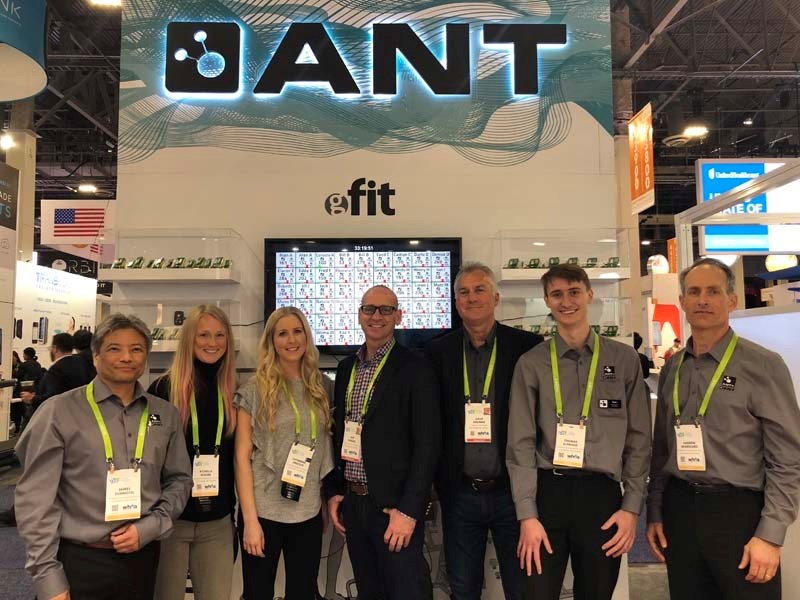Cochrane was more than just a face in the crowd at the 2018 Consumer Technology Association Conference.
Mayor Jeff Genung and CAO Dave Devana spent last week talking tech and getting a crash course about how to get Cochrane to the table for the Smart Cities Challenge at the Las Vegas-held event that saw more than 180,000 people in attendance.
The pair were able to network with countless innovators – from Cochrane-based tech giant Garmin, showcasing their ANT technology brand, to 4iiii Innovations, to meeting with tech start-up companies and learning about the existing technologies and trends from the global tech companies on deck.
“I would really like to build an incubator for tech start-ups in Cochrane,” said Genung, who spent a big chunk of time networking with the 900 start-up businesses on the conference floor level, called “Eureka Park.”
During Genung’s discussions, he learned what it would take to attract new businesses to Cochrane, discussing everything from investment to worker retention to the Canadian dollar incentive.
The Cochrane officials also spent time recruiting companies to vie for the Smart Cities Challenge – a nation-wide call for municipalities partnering with tech sector companies to turn their towns into smart cities through the implementation of cutting-edge technologies.
The Smart Cities Challenge application deadline is April 24 with top prize taking home up to $50 million, two second place winners each garnering up to $10 million and a third-place winner bringing home up to $5 million for their communities.
It’s the reason Cochranite Kevin Shier of Bird’s Eye Technologies attended the conference – to learn about the Smart Cities agenda.
“The idea is for the city to be the platform … I’m excited about that,” said Shier, who is a project lead for the town’s fibre optics program – a critical precursor to turning Cochrane into a smart city.
Last spring, council approved $500,000 to cover the costs of a pilot project to connect participating Cochrane businesses into an improved fibre optic system connecting the town to Calgary.
Since the spring, the town has completed a number of steps in activating the town’s dark (unused) fibre network capabilities, including setting up a backhaul connection to Calgary and is finishing construction of a server room for the new service at the town operations building site.
Shier said he was impressed to learn that the state of Michigan already has all the legislation in place for automated vehicles on roadways – reiterating that the technology exists, it’s about getting the public on board.
The take home on smart city implementation for Shier was making sure any plan for implementation was brought in through public engagement and transparency, limiting government regulation and re-thinking how cities are planned and constructed.
Ken Fyfe of 4iiii said following conversations with Genung at the conference, they were left with the resounding message to “think big” when it comes to getting on board with the Smart Cities Challenge and came away with “all kinds of ideas percolating in our minds.”
Jim Rooney, managing director of Garmin Cochrane, said the company has had discussions with Genung and is looking at how it can be a part of the challenge.
“There’s definitely a big push in the world for making cities smarter … a lot of the wireless technologies and other stuff we are working on can be applicable,” said Rooney.
Genung said examples of making Cochrane smarter include a limitless range of possibilities – such as sensors on light standards that could result improved traffic flow.
“It’s about getting our individual patterns on a network where we can share efficiencies as a society,” said Genung.
“We’re at a unique place where we already have the geography and I think we are at a size where we could pilot some of these technologies.”




